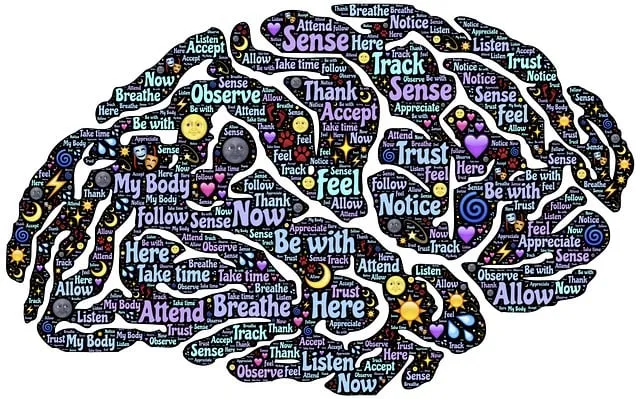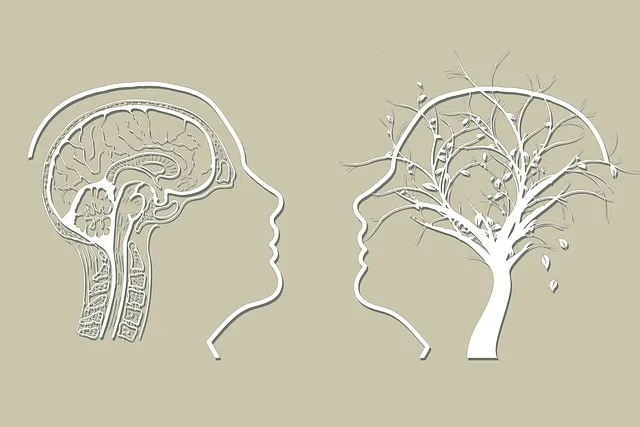The Kaiser Permanente Mental Health Highlands Ranch program offers holistic services focusing on mood management, emotional intelligence development, and stress reduction through individual therapy and group support. Evaluating the program involves quantitative surveys and qualitative methods like focus groups and interviews to gain insights into participants' experiences and perceptions. By integrating these approaches, Kaiser Permanente ensures comprehensive evaluation and continuous improvement based on robust feedback loops and data analysis. The program aligns with evolving needs for anxiety relief and stress management using Mind Over Matter principles, fostering a dynamic environment of continuous learning and growth for improved mental wellness outcomes.
Mental wellness programs, such as the Kaiser Permanente Mental Health Highlands Ranch initiative, are transforming healthcare. This comprehensive program offers valuable insights into improving mental health services. The article explores evaluation methods that assess the impact and effectiveness of such initiatives. From understanding key metrics to implementing continuous improvement through feedback loops and data analysis, we delve into strategies to optimize mental wellness outcomes for Kaiser Permanente’s Highlands Ranch program and similar endeavors.
- Understanding Kaiser Permanente Mental Health Highlands Ranch Program
- Evaluation Methods for Measuring Impact and Effectiveness
- Continuous Improvement: Feedback Loops and Data Analysis Techniques
Understanding Kaiser Permanente Mental Health Highlands Ranch Program

The Kaiser Permanente Mental Health Highlands Ranch program is a comprehensive initiative designed to address and support mental wellness within the community. This program offers a range of services tailored to meet various psychological needs, ensuring individuals have access to effective care. By focusing on holistic well-being, it incorporates strategies for mood management, emotional intelligence development, and stress reduction techniques.
Highlands Ranch residents benefit from a multi-faceted approach that combines individual therapy sessions with group support programs. The mental health professionals at Kaiser Permanente are dedicated to fostering an environment that promotes resilience and empowers individuals to take charge of their emotional health. Through evidence-based practices, the program aims to enhance coping mechanisms, improve overall mood stability, and build long-lasting emotional intelligence, thereby enriching the lives of those seeking support in the community.
Evaluation Methods for Measuring Impact and Effectiveness

The evaluation of mental wellness programs is a multifaceted process that plays a pivotal role in understanding their impact and effectiveness. Organizations like Kaiser Permanente mental health Highlands Ranch employ diverse methods to assess the success of their initiatives. One common approach involves gathering quantitative data through surveys and questionnaires distributed to program participants. These tools measure various aspects, including changes in symptoms, improved coping mechanisms, and enhanced overall well-being. For instance, assessing the utilization rates of Trauma Support Services before and after the program can offer valuable insights into its effectiveness in addressing trauma-related concerns.
Qualitative methods also form a crucial component of evaluation. Focus groups, interviews, and case studies provide deeper understandings of participants’ experiences and perceptions. These techniques allow individuals to share personal stories, highlighting the positive shifts in their mental health journeys. For example, exploring participants’ engagement with Mindfulness Meditation sessions can reveal how these practices have influenced stress management and overall mental wellness. By combining both quantitative and qualitative approaches, Kaiser Permanente mental health Highlands Ranch ensures a comprehensive evaluation, enabling them to refine and optimize their programs for better outcomes.
Continuous Improvement: Feedback Loops and Data Analysis Techniques

At Kaiser Permanente mental health Highlands Ranch, continuous improvement is at the core of their wellness programs. This involves establishing robust feedback loops that capture participant experiences and outcomes. By collecting qualitative and quantitative data through surveys, interviews, and performance metrics, they can identify areas for enhancement. Data analysis techniques, such as statistical modeling and trend analysis, help in deciphering patterns and correlations, allowing for evidence-based adjustments to program components.
This approach ensures the program aligns with the evolving needs of its participants, particularly those seeking Anxiety Relief and Stress Management. By embracing Mind Over Matter Principles, Kaiser Permanente fosters a dynamic environment where learning and growth are continuous, ultimately leading to improved mental wellness outcomes for all individuals involved.
The Kaiser Permanente Mental Health Highlands Ranch program’s evaluation methods, including impact measurement, effectiveness assessments, and continuous improvement strategies, demonstrate a holistic approach to mental wellness. By employing diverse techniques such as data analysis and feedback loops, the program ensures its adaptability and ability to cater to the evolving needs of its participants. This comprehensive evaluation framework serves as a model for other healthcare organizations, emphasizing the significance of regularly assessing and enhancing mental health initiatives to achieve optimal outcomes for all individuals seeking support.






